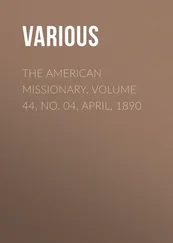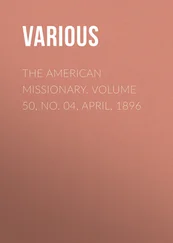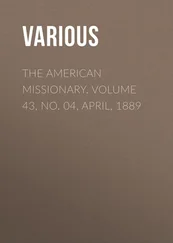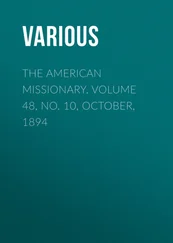Elizabeth Ellet - The Women of The American Revolution, Vol. 2
Здесь есть возможность читать онлайн «Elizabeth Ellet - The Women of The American Revolution, Vol. 2» — ознакомительный отрывок электронной книги совершенно бесплатно, а после прочтения отрывка купить полную версию. В некоторых случаях можно слушать аудио, скачать через торрент в формате fb2 и присутствует краткое содержание. Жанр: foreign_antique, foreign_prose, на английском языке. Описание произведения, (предисловие) а так же отзывы посетителей доступны на портале библиотеки ЛибКат.
- Название:The Women of The American Revolution, Vol. 2
- Автор:
- Жанр:
- Год:неизвестен
- ISBN:нет данных
- Рейтинг книги:5 / 5. Голосов: 1
-
Избранное:Добавить в избранное
- Отзывы:
-
Ваша оценка:
- 100
- 1
- 2
- 3
- 4
- 5
The Women of The American Revolution, Vol. 2: краткое содержание, описание и аннотация
Предлагаем к чтению аннотацию, описание, краткое содержание или предисловие (зависит от того, что написал сам автор книги «The Women of The American Revolution, Vol. 2»). Если вы не нашли необходимую информацию о книге — напишите в комментариях, мы постараемся отыскать её.
The Women of The American Revolution, Vol. 2 — читать онлайн ознакомительный отрывок
Ниже представлен текст книги, разбитый по страницам. Система сохранения места последней прочитанной страницы, позволяет с удобством читать онлайн бесплатно книгу «The Women of The American Revolution, Vol. 2», без необходимости каждый раз заново искать на чём Вы остановились. Поставьте закладку, и сможете в любой момент перейти на страницу, на которой закончили чтение.
Интервал:
Закладка:
The period came when this rural Eden, which had bloomed and flourished under their care, was to be exchanged for new scenes. A few years of rest and tranquil happiness in the society of friends having rewarded the Chief's military toils, he was called by the voice of the nation to assume the duties of its Chief Magistrate. The call was obeyed. The establishment of the President and Mrs. Washington was formed at the seat of government. The levees had more of courtly ceremonial than has been known since; but it was necessary to maintain the dignity of office by forms that should inspire respect. Special regard was paid to the wives of men who had deserved much of their country. Mrs. Robert Morris was accustomed to sit at the right of the lady of the President, at the drawing-rooms; and the widows of Greene and Montgomery were always handed to and from their carriages by the President himself; the secretaries and gentlemen of his household performing those services for the other ladies. In this elevated station, Mrs. Washington, unspoiled by distinction, still leaned on the kindness of her friends, and cultivated cheerfulness as a duty. She was beloved as few are in a superior condition. Mrs. Warren says, in reply to one of her letters, "Your observation may be true, that many younger and gayer ladies consider your situation as enviable; yet I know not one who by general consent would be more likely to obtain the suffrages of the sex, even were they to canvass at elections for the elevated station, than the lady who now holds the first rank in the United States." 7 7 Manuscript letter.
On the retirement of Washington from public life, he prepared to spend the remnant of his days in the retreat his taste had adorned.
It was a spectacle of wonder to Europeans, to see this great man calmly resigning the power which had been committed to his hands, and returning with delight to his agricultural pursuits. His wife could justly claim her share in the admiration; for she quitted without regret the elevated scenes in which she had shone so conspicuous, to enter with the same active interest as before upon her domestic employments. Her advanced age did not impair her ability or her inclination to the discharge of housewifely duties. But she was not long permitted to enjoy the happiness she had anticipated. It was hers too soon to join in the grief of a mourning nation for the death of Washington.
Visits of condolence were paid to the bereaved lady by the President and others; and from all quarters came tributes of sympathy and sorrow. She continued to receive the visitors who came to Mount Vernon, and gave the same attention to her domestic concerns. But in less than two years after her husband's death, she was attacked by a fever that proved fatal. When aware that the hour of her dissolution was approaching, she called her grandchildren to her bedside; discoursed to them on their respective duties; spoke of the happy influences of religion; and then, surrounded by her weeping family, resigned her life into the hands of her Creator, in the seventy-first year of her age. Her death took place on the 22d of May, 1802. Her remains rest in the same vault with those of Washington, in the family tomb at Mount Vernon.
Those who read the record of her worth, dwell with interest on the loveliness of her character. To a superior mind she joined those amiable qualities and Christian virtues which best adorn the female sex, and a gentle dignity that inspired respect without creating enmity. Her features are familiar to all, from the portraits of her, taken at different ages, published in Sparks' Life of Washington, and the National Portrait Gallery. These have been copied into different publications.
XXVII. ABIGAIL ADAMS
The Letters of Mrs. Adams are well known to American readers. Her history and character have been so well unfolded in these and in the memoir by her grandson, that an extended sketch of her would be superfluous. Only a brief notice, therefore, is here required.
Abigail Smith was descended from the genuine stock of the Puritan settlers of Massachusetts. Her father, the Reverend William Smith, was for more than forty years minister of the Congregational Church at Weymouth. The ancestors of her mother, Elizabeth Quincy, were persons distinguished in the sacred office, and first in honor among the leaders of the church. From this ancestry, it may be inferred that her earliest associations were among those whose tastes and habits were marked by the love of literature. She was the second of three daughters, and was born at Weymouth, Nov. 11th, 1744. Not being sent to any school, on account of the delicate state of her health, the knowledge she evinced in after life was the result of her reading and observation, rather than of what is commonly called education. The lessons that most deeply impressed her mind were received from Mrs. Quincy, her grandmother, whose beneficial influence she frequently acknowledges. Her marriage took place, October 25th, 1764. She passed quietly the ten years that succeeded, devoting herself to domestic life, and the care of her young family. In 1775 she was called to pass through scenes of great distress, amid the horrors of war and the ravages of pestilence.
She sympathized deeply in the sufferings of those around her. "My hand and heart," she says, "still tremble at this domestic fury and fierce civil strife. I feel for the unhappy wretches, who know not where to fly for succor. I feel still more for my bleeding countrymen, who are hazarding their lives and their limbs!" To the agonized hearts of thousands of women went the roar of the cannon booming over those hills! Many a bosom joined in breathing that prayer – "Almighty God! cover the heads of our countrymen, and be a shield to our dear friends."
When the neighborhood was no longer the field of military action, she occupied herself with the management of the household and farm. Mr. Adams was appointed joint commissioner at the court of France, and embarked in February, 1778, with his eldest son, John Quincy. During the years in which Mrs. Adams was deprived of his society, she devoted herself to the various duties devolving on her, submitting with patience to the difficulties of the times. In all her anxieties, her calm and lofty spirit never deserted her; nor did she regret the sacrifice of her own feelings for the good of the community. After the return of peace, Mr. Adams was appointed the first representative of the nation at the British court, and his wife departed to join him; moving from this time amidst new scenes and new characters, but preserving, in the variety and splendor of life in the luxurious cities of the old world, the simplicity and singleness of heart which had adorned her seclusion at home. In the prime of life, with a mind free from prejudice, her record of the impressions she received is instructive as well as interesting. She resided for a time in France, and visited the Netherlands, enjoying all she saw, with that delicate perception of beauty which belongs to a poetic spirit. When the official duties of Mr. Adams called him to the court of St. James, the unaffected republican simplicity, and exquisite union of frankness and refinement in her manners, charmed the proud circles of the English aristocracy. As was to be expected, neither she nor her husband were exempted from annoyances growing out of the late controversy. She writes to Mrs. Warren: "Whoever in Europe is known to have adopted republican principles must expect to have all the engines of every court and courtier in the world displayed against him." 8 8 Unpublished letter.
The aspect of independence she maintained, considering what was due to her country, did not tend to propitiate the pride of royalty; yet notwithstanding the drawbacks that sometimes troubled her, her residence in London seems to have been an agreeable one. Her letters to her sisters are a faithful transcript of her feelings. She observed with mingled pleasure and pain the contrast between the condition of her own country and that of the prosperous kingdoms she visited. Writing to Mrs. Shaw she says – "When I reflect on the advantages which the people of America possess over the most polished of other nations, the ease with which property is obtained, the plenty which is so equally distributed, – their personal liberty and security of life and property, I feel grateful to Heaven who marked out my lot in that happy land; at the same time I deprecate that restless spirit, and that baneful ambition and thirst for power, which will finally make us as wretched as our neighbors." 9 9 Unpublished letter, 1787.
Интервал:
Закладка:
Похожие книги на «The Women of The American Revolution, Vol. 2»
Представляем Вашему вниманию похожие книги на «The Women of The American Revolution, Vol. 2» списком для выбора. Мы отобрали схожую по названию и смыслу литературу в надежде предоставить читателям больше вариантов отыскать новые, интересные, ещё непрочитанные произведения.
Обсуждение, отзывы о книге «The Women of The American Revolution, Vol. 2» и просто собственные мнения читателей. Оставьте ваши комментарии, напишите, что Вы думаете о произведении, его смысле или главных героях. Укажите что конкретно понравилось, а что нет, и почему Вы так считаете.












